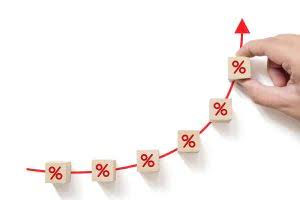The Difference between Bookkeeping and Accounting

This type of account is designed for everyday use and allows businesses to make unlimited deposits and withdrawals. Typically, checking accounts also come with a debit card for easy access to funds. Accounts receivable (AR) is the money your customers owe you for products or services they bought but have not yet paid for.
Xero 101: 3 Things Your Xero Journal Entries Are Missing
By carefully evaluating these factors, you can ensure that your financial services Accounts Payable Management are not only a perfect fit but also a robust foundation for your business’s future growth and stability. As a small business owner, you wear many hats, but when it comes to managing your finances, it’s crucial to understand the difference between bookkeeping and accounting. While both play a vital role in the financial health of your business, they serve distinct purposes. Creating an environment where bookkeepers and accountants work in tandem can significantly impact your business’s financial health. They can efficiently manage basic financial tasks without overwhelming your budget.
Empowering Your Business Through Strategic Financial Management
- You avoid overhead, skip the hiring hassle, and only pay for the services you actually need.
- When adding all of the debits I had to choose the multiple choice that was closest rounding down.
- (The depreciation journal entry includes a debit to Depreciation Expense and a credit to Accumulated Depreciation, a contra asset account).
- Again, credit means right side and our T-account showed credits on the right side.
Many accountants also go on to earn other professional certifications, such as becoming a certified public accountant (CPA) or certified management accountant (CMA). These licenses require hours of additional coursework and passing an exam. Continuous learning, effective communication, ethics, and problem-solving abilities are also crucial for professional growth in these fields. Bookkeepers and accountants handle sensitive financial information and have access to confidential data. They must uphold high ethical standards and demonstrate integrity in their work.
What Does a Bookkeeper Do?
The chart of accounts can be expanded and tailored to reflect the operations of the company. For any of the financial statements to be accurate it is necessary to have a proper cut-off. This means including all bookkeeping services of a company’s business transactions in the proper accounting period.
What skills can I learn from Accounting and Bookkeeping courses on Coursera?
- Advanced accounting also plays a pivotal role in compliance, ensuring businesses adhere to financial regulations and standards.
- Clear financial reporting and careful analysis are necessary for understanding how a business is performing.
- They maintain accurate records of daily financial activities and manage accounts payable and accounts receivable.
- For any of the financial statements to be accurate it is necessary to have a proper cut-off.
- The books of account need to be up-to-date as it is the basis for accounting.
- Accounting focuses on analyzing, summarizing, and interpreting financial data for businesses and organizations.
Good financial health means the company is likely to handle future risks and continue operating. Most positions require at least a bachelor’s degree in accounting or a related field, such as finance or business administration. Community adjusting entries colleges and vocational schools often offer bookkeeping courses or certificates that teach the basics of accounting software and financial recordkeeping. Bookkeepers and accountants have different educational paths and certification options. The level of required training, type of degree, and professional credentials can affect career opportunities and job responsibilities in each field.




